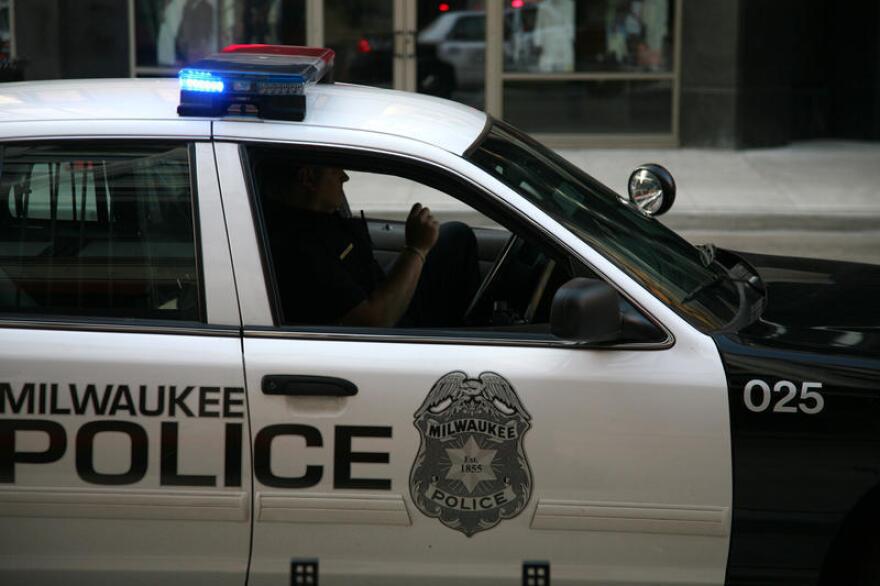Over the past couple weeks, WUWM did a series of reports about police reforms in Wisconsin. The series looked at police training, the use of no-knock warrants, calls for defunding the police and the many ways their policies have changed in light of recent protests. Now, a new report, titled "Taking Stock: Milwaukee Police Department policies and protocols in the context of national reform," by the Wisconsin Policy Forum is dissecting recent policy reforms at the Milwaukee Police Department (MPD) and how they stack up to other cities.
The report was commissioned by Milwaukee Mayor Tom Barrett and Policy Forum President Rob Henken is one of its authors. Henken says the report breaks down six bucket of issues: reimagining public safety, data collection and record-keeping, accountability and transparency, training and support, demilitarization and use of force.
“On an informational basis, we thought this would be helpful to community leaders to just have all of this in one place,” he says. “[The report is] not a look at how Milwaukee Police Department policies and protocols are actually being implemented and effectuated out on the street.”
The report found that on the issue of use of force, MPD is in line with the peer cities of Baltimore, Kansas City, Memphis, Minneapolis and Tucson. Henken attributes that to a December 2020 update of MPD policies.
“A very prominent organization with regards to use of force issues is a group called 8 Can’t Wait that advocated for a specific set of reforms in this area, the Milwaukee Police Department’s policies and protocols are now essentially very consistent with that set of reforms and interestingly the peer departments also made progress in those areas and they all look pretty much the same,” he says.
Another area where the report found MPD to be in line with the police reforms advocates are asking for is training and support. When it comes to mental health training, all Milwaukee police officers receive 40 hours of crisis intervention training to understand how to help individuals having a mental health crisis.
Henken says while the training is equal to what officers in other cities receive, Milwaukee and other cities have started discussions about using mental health professionals to respond to calls involving a mental health crisis instead of a police officer.
That leads into the territory of reimagining what the role of a police officer looks like, which the report says there are “early signs of progress” but no major action.
“The good news is because of the progress that is made on sort of, the basic fundamentals that now some of these reimagining ideas need to be looked at more carefully and further more we cite some examples from some of the peer cities where citizen councils have been formed to work with law enforcement and city governments on reimagining ideas, that’s the big picture answer,” he says.
Henken says that on the issue of accountability and transparency, MPD has improved over the last few years with more information being made available, but he says this is an area that always has space to get better.
“Greater efforts to make these efforts more user friendly, and with even more types of information. Greater numbers of community meetings and forums, things like that. This is always an area where I think any governmental entity always wants to be introspective and look at ways to improve,” he says.
On data collection and recordkeeping, Henken says having good data available to the public isn’t just a concern for people like him who spend their life pouring over data reports. He says to make good and informed decisions on big issues like reimagining the role of police, data needs to inform those decisions. Henken says when it comes to MPD, there is a “need for improvement but not a glaring insufficiency."
Finally, on demilitarization, Henken says that MPD doesn’t own some of the heavy grade military equipment that other departments own but that it has borrowed similar equipment from surrounding suburban departments. The city of Milwaukee is conducting a review of the use of pepper spray and tear gas to decide if it needs to make changes around those policies. None of the peer cities have made any recent changes to their policies around military-style vehicles or chemical agents.
The report says that the early reforms being made in the Milwaukee Police Department can hopefully serve as jumping off point when it comes to further discussions around changes for policing in Milwaukee.







